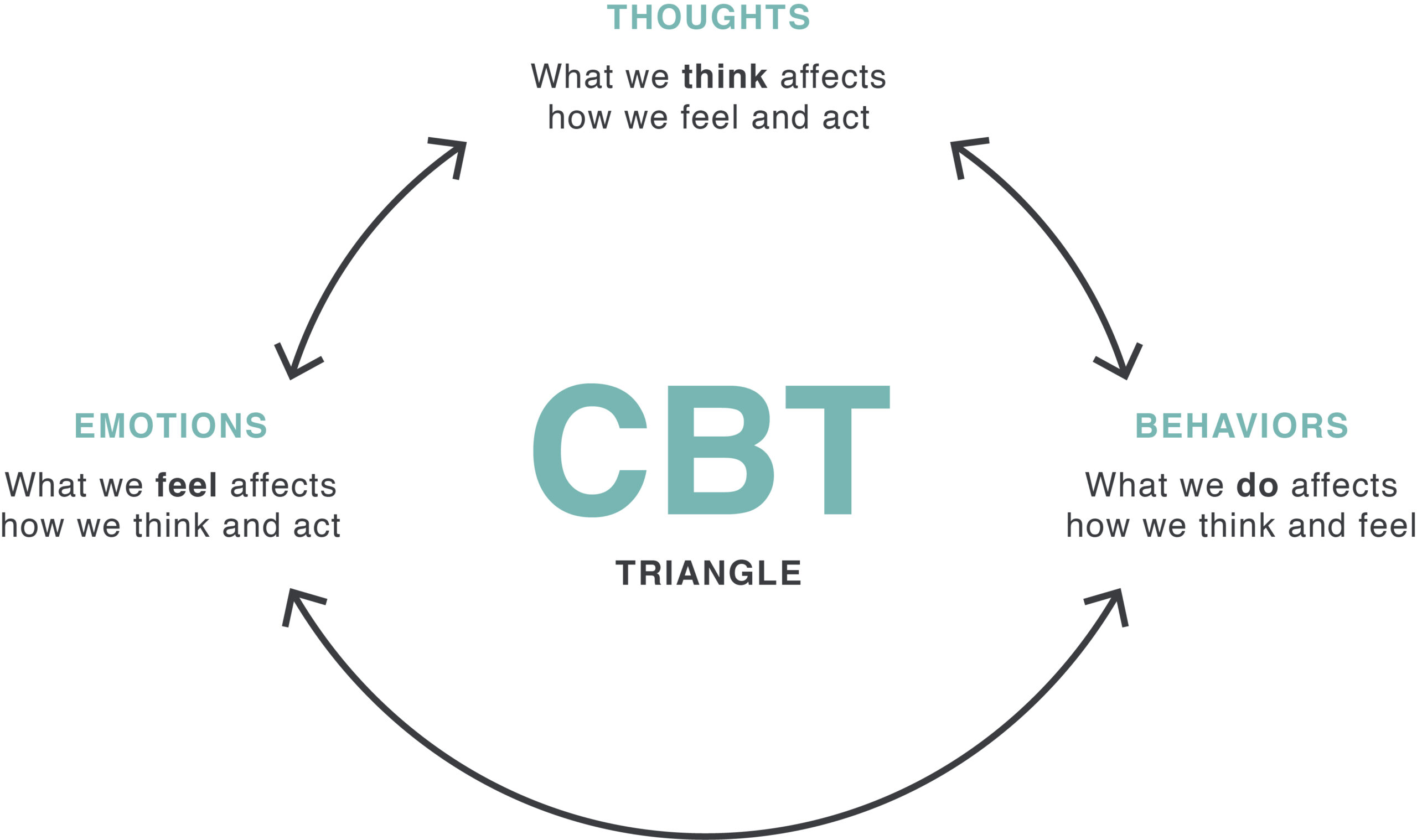
CBT Treatment for Anxiety in Marietta and Roswell
What is CBT?
Cognitive behavioral therapy (CBT) is a form of treatment that has been demonstrated to treat a range of issues including anxiety, depression, eating disorders, etc. Research suggests that using CBT can lead to an improved quality of life and an improvement in functioning.
The core principles of Cognitive Behavioral Therapy are:
- Psychological problems are based on unhelpful ways of thinking.
- Psychological problems are based on unhelpful learned patterns of behavior.
- People suffering from psychological problems can learn better ways to cope with them.
How is CBT Used?
The CBT triangle, or the cognitive triangle, provides a framework for understanding how thoughts, emotions, and behaviors are related. The CBT triangle helps people identify and challenge harmful patterns or distorted ways of thinking. For instance, by recognizing distorted ways of thinking such as all-or-nothing thinking or catastrophizing, our mental health counselors can help you work towards changing thought patterns that are contributing to feelings of distress.
At the top of the CBT triangle are our thoughts. When we have distorted thoughts, those are referred to as cognitive distortions. An example of a cognitive distortion is all-or-nothing thinking. An example of this would be “I am feeling tired today. I will probably not be able to get any work done.” Another cognitive distortion is called emotional reasoning – believing just because you feel a certain way, it must be true. An example would be feeling anxious before a presentation and thinking, “I am feeling anxious about this. It must mean this presentation is going to be a disaster.”
Challenging and modifying these distorted cognitions is necessary in helping you develop alternative ways of thinking and reducing the distress. In the above examples, we may replace the thoughts with “I am feeling tired, so I may not get ALL of my work done today. I may be able to get about 75% of it done” or “I may be feeling nervous about the presentation, but my feelings don't dictate the actual outcome. I've prepared thoroughly, and feeling a bit anxious is normal. It doesn't mean the presentation is destined to go poorly.”
CBT also uses techniques to help modify behaviors. CBT employs techniques to help you modify behaviors that aren’t effective or are no longer serving you. For example, someone with social anxiety might set a goal of meeting a friend at a public place, gradually exposing themselves to feared situations in a controlled manner.
What are the Benefits of CBT?
CBT has many benefits that can improve your life. CBT can help you:
- Tackle distressing events: Confronting challenging situations in your life may be difficult, but it's a crucial step to uncover the underlying issues, such as addiction or mental illness.
- Acknowledge emotions surrounding issues: Being aware of your emotions enhances the effectiveness of the coping skills you develop, leading to a better outcome.
- Identify negative thought patterns: Recognizing negative thought patterns and understanding how they may contribute to the overall issues can help you get to the root of the problem.
- Learn problem-solving skills: Restructure your thinking and learn to handle stressful situations by acquiring practical problem-solving skills.
- Increase self-esteem: When you think positively about yourself and the world around you, you boost your self-esteem.
Our CBT Treatment Approach is...
Evidence Based
Our mental health therapists are trained in proven, evidence-based methods so you can create real change.
Holistic
Real change can’t be compartmentalized. We get to the root of your issues and treat the whole person.
Personalized
Smaller caseloads ensure you receive the individualized cognitive behavioral therapy you need to become the best you.
Need some advice? We made this content just for you.






